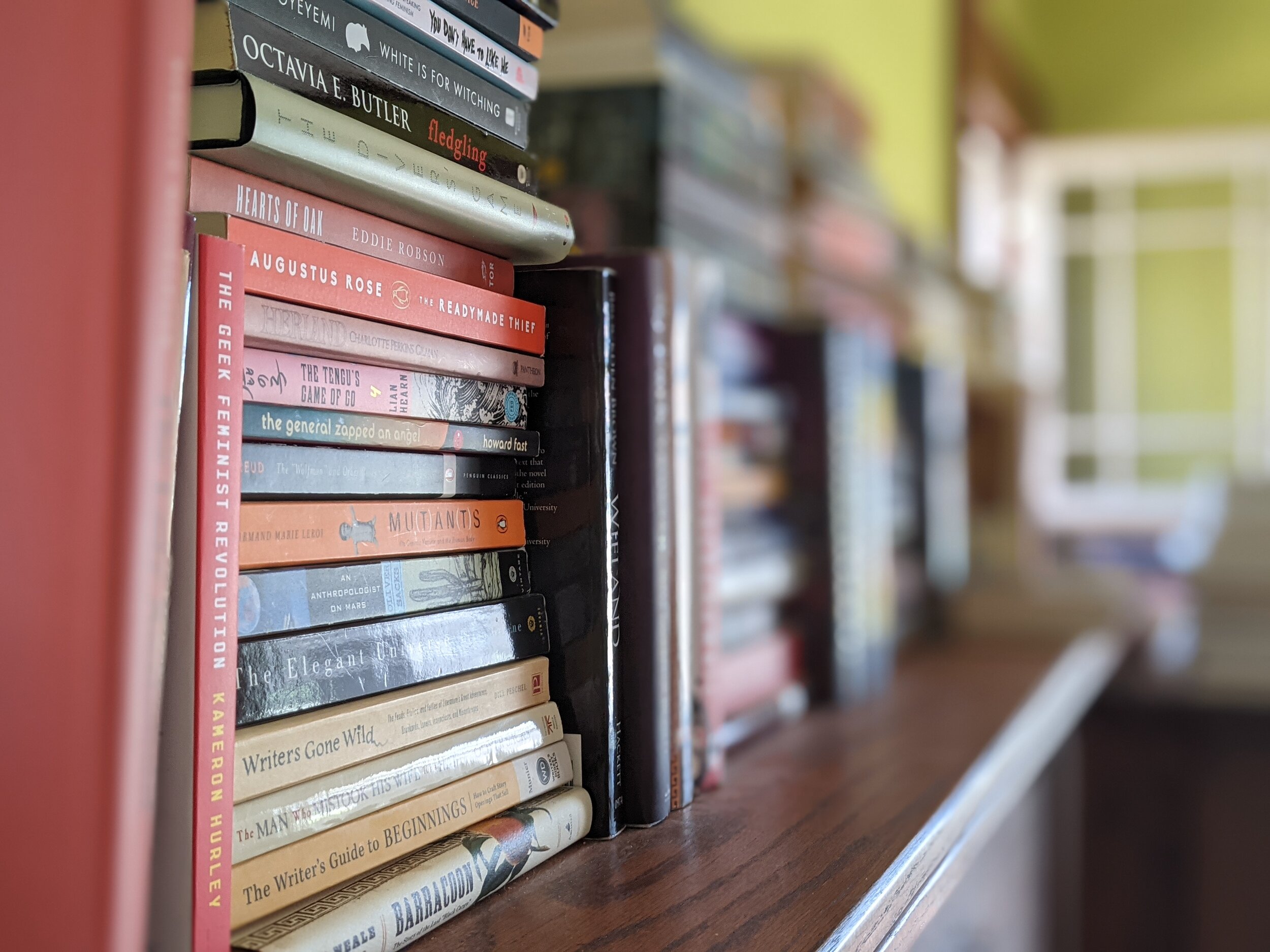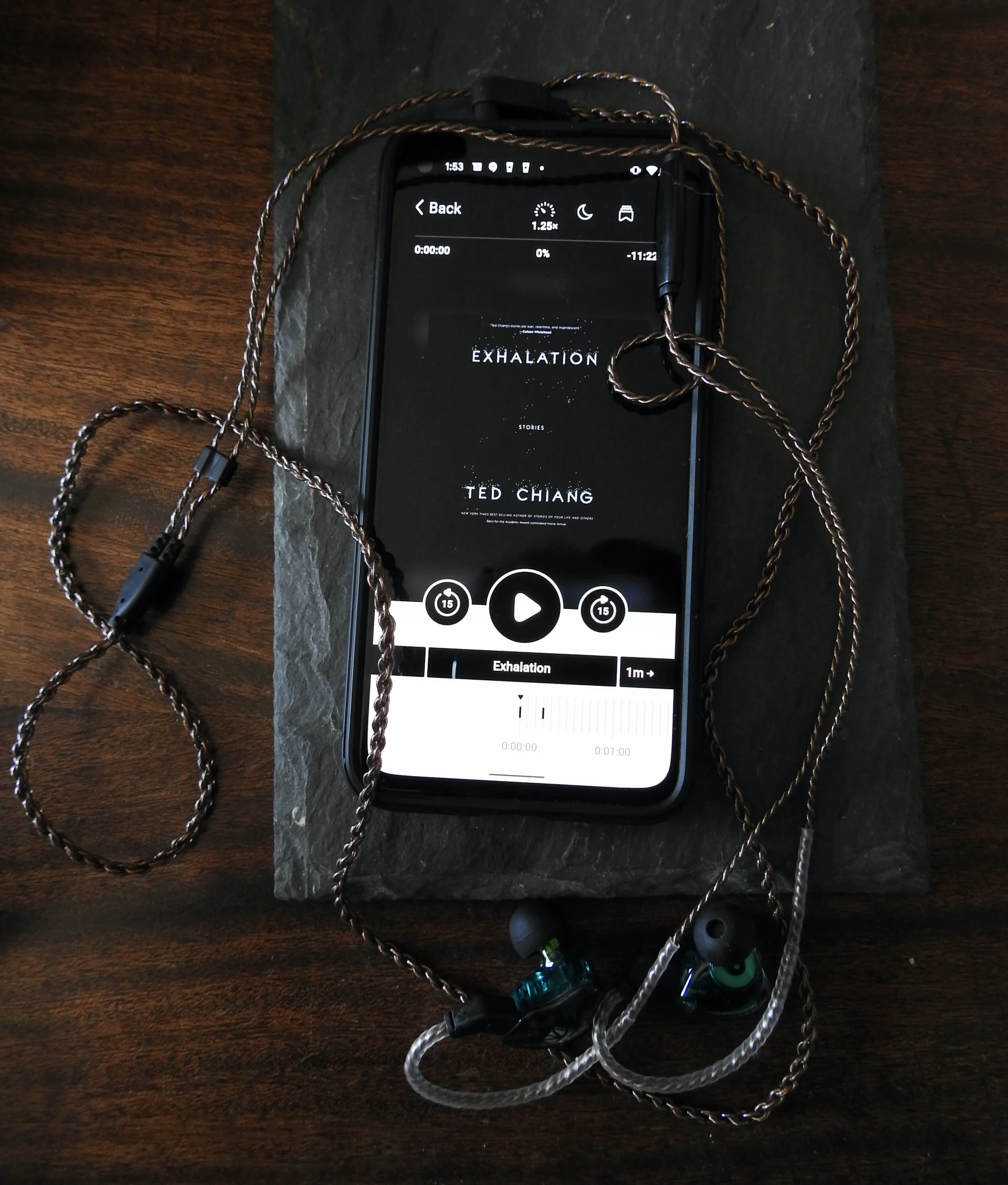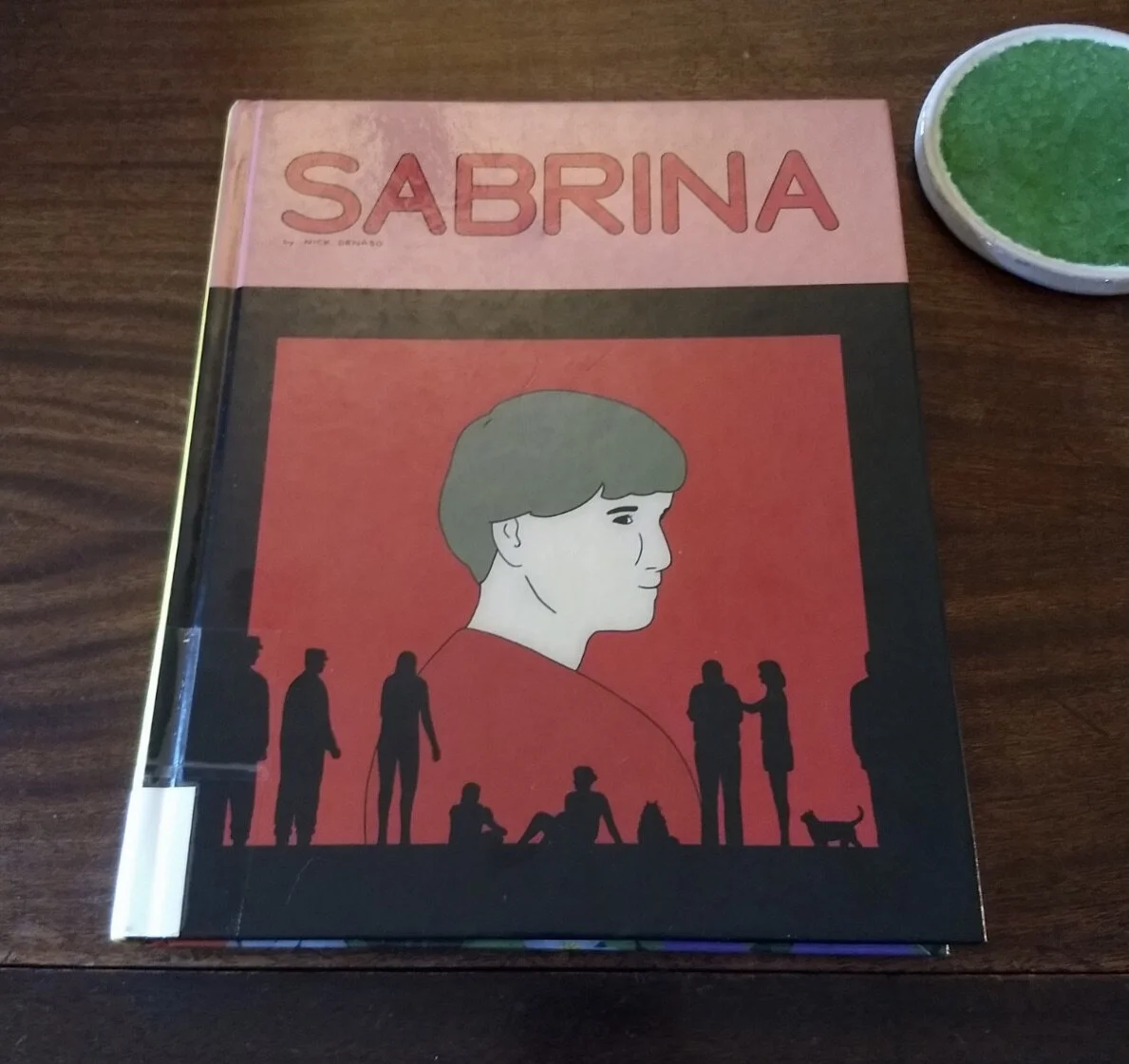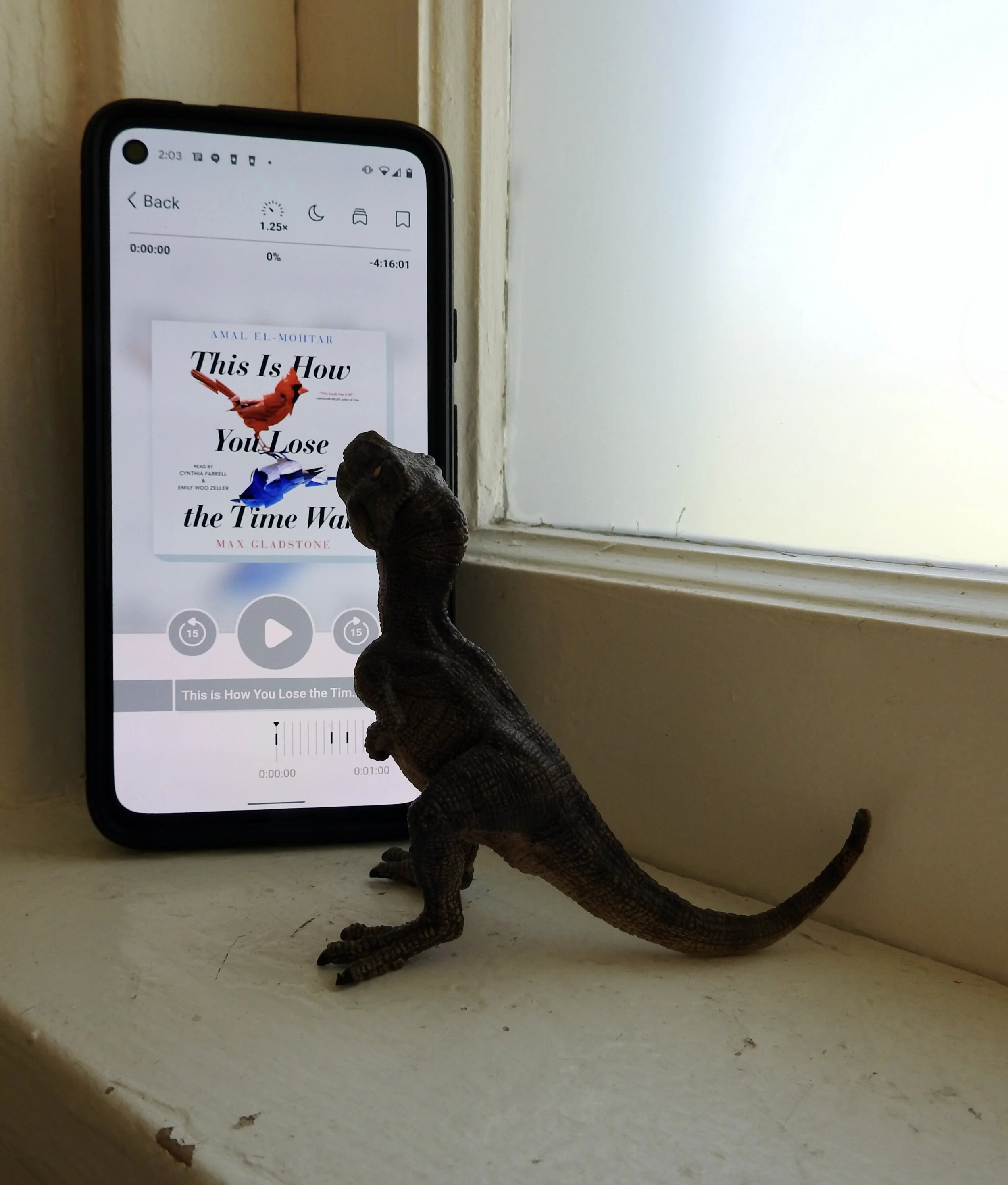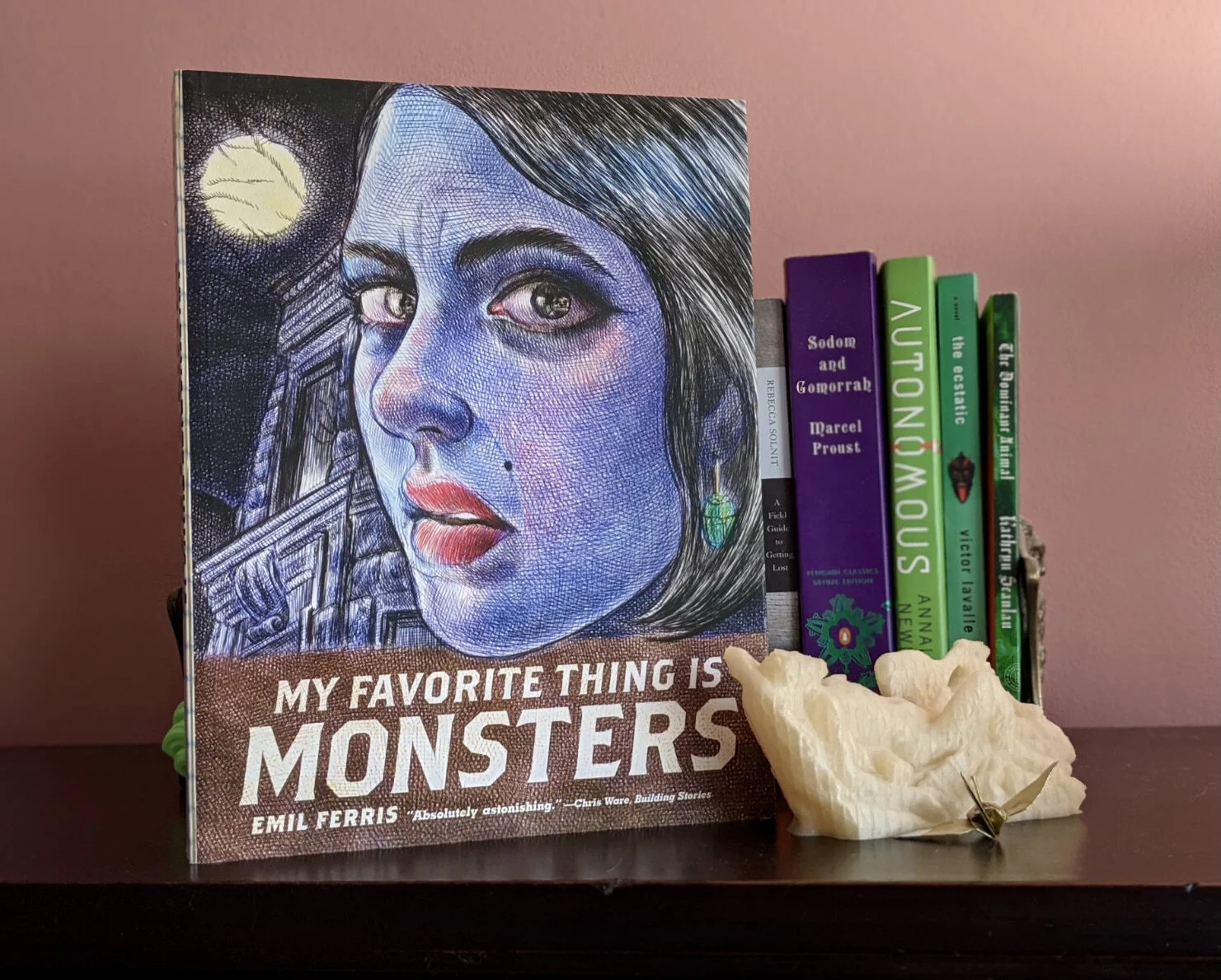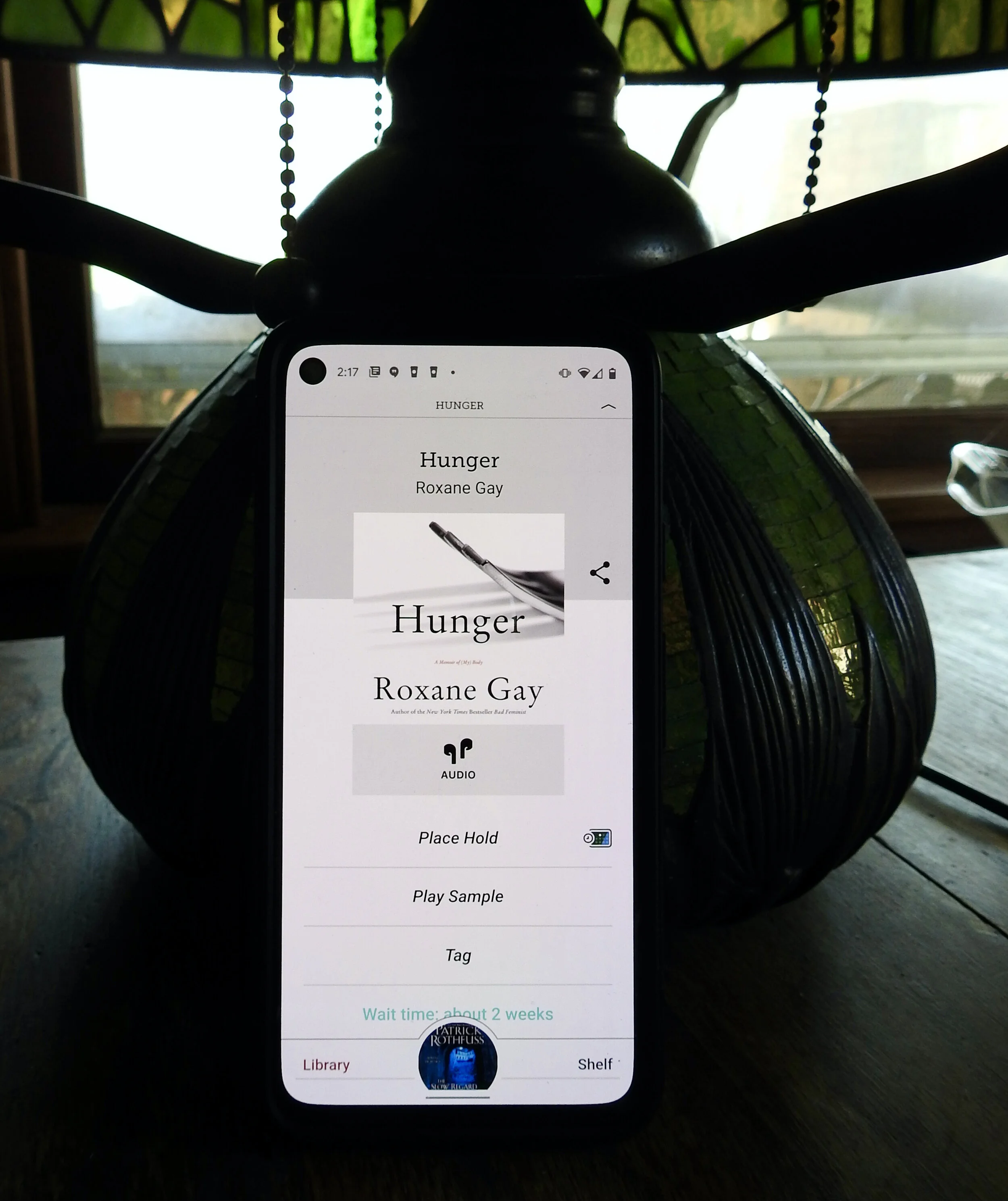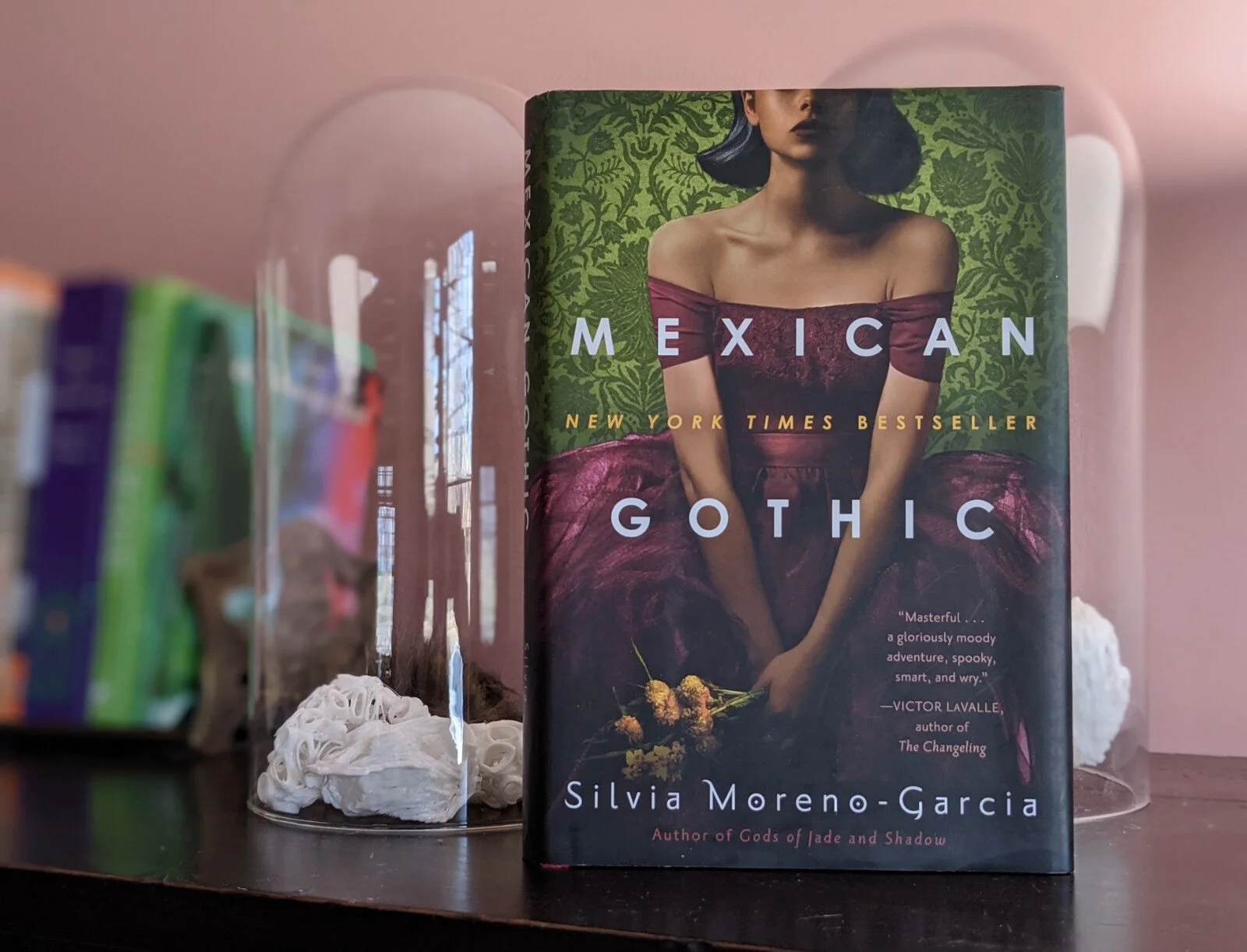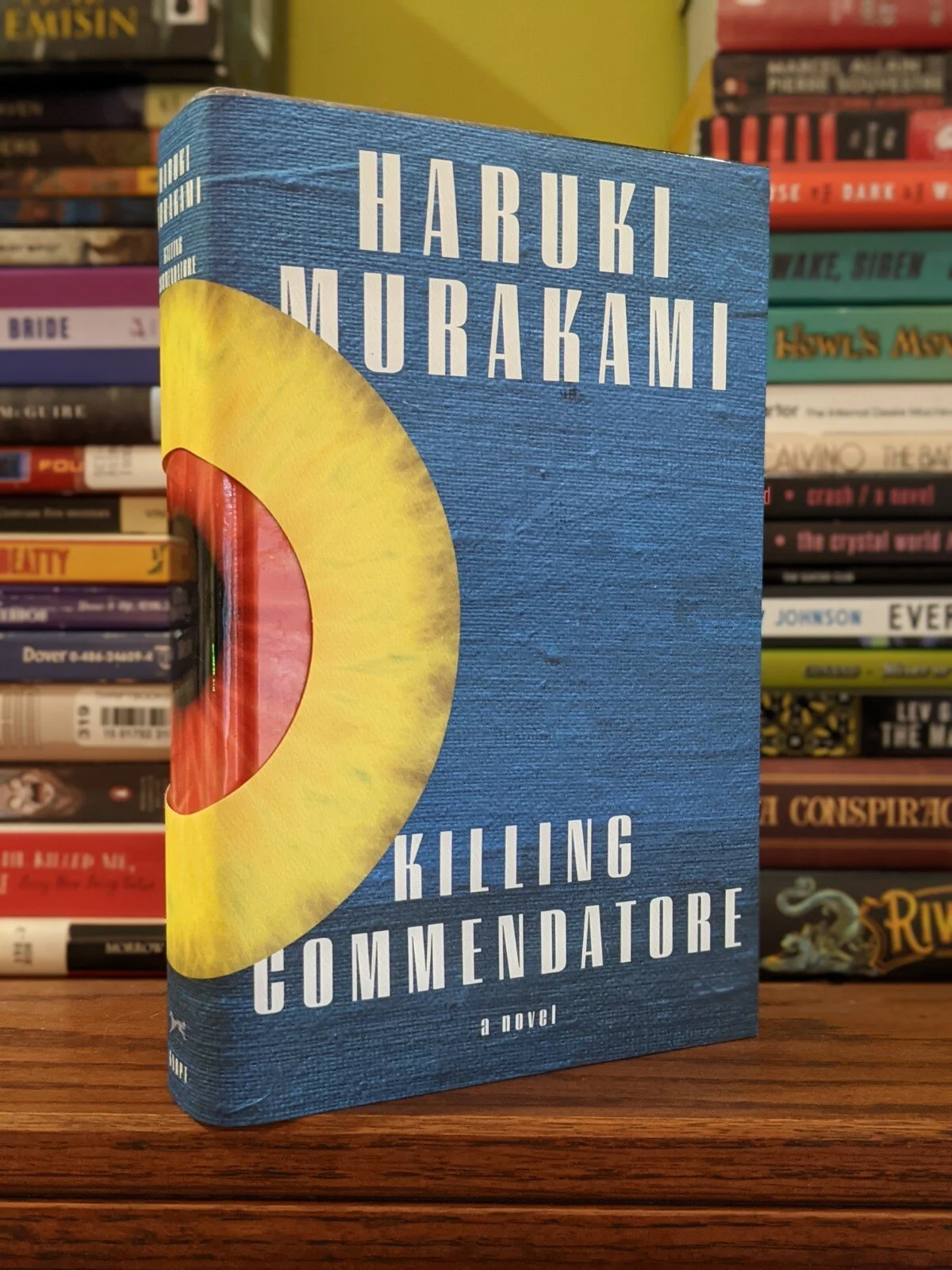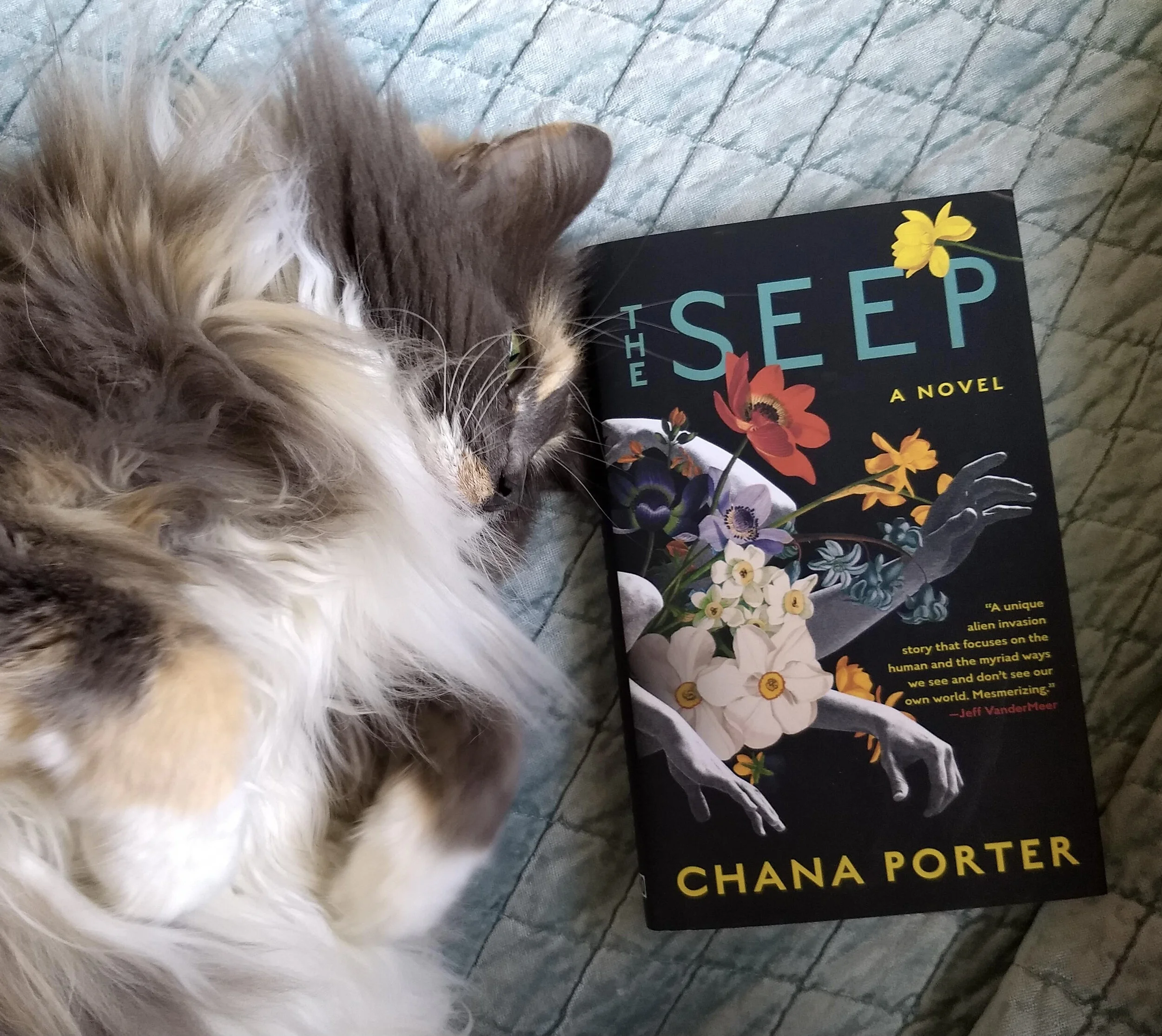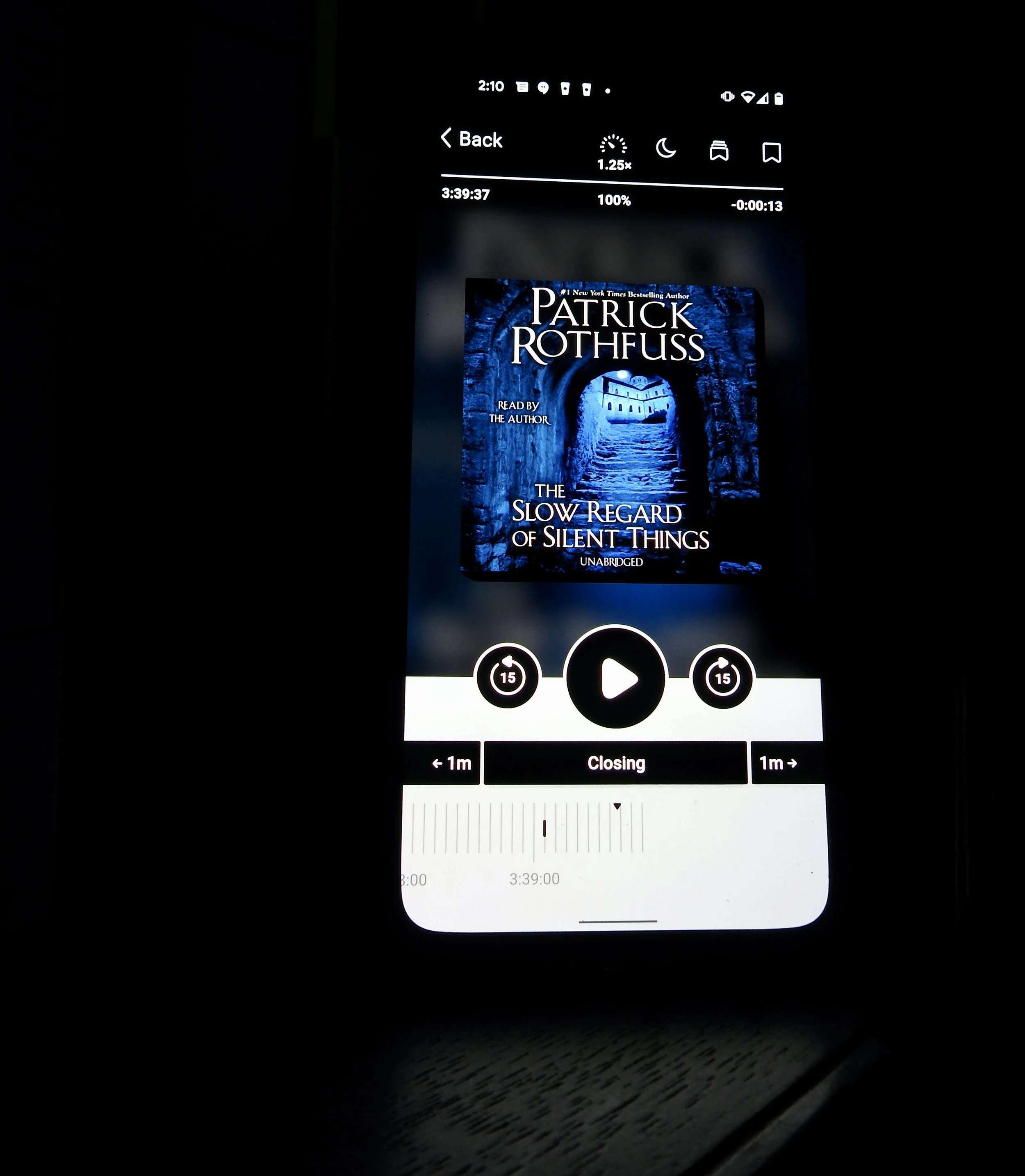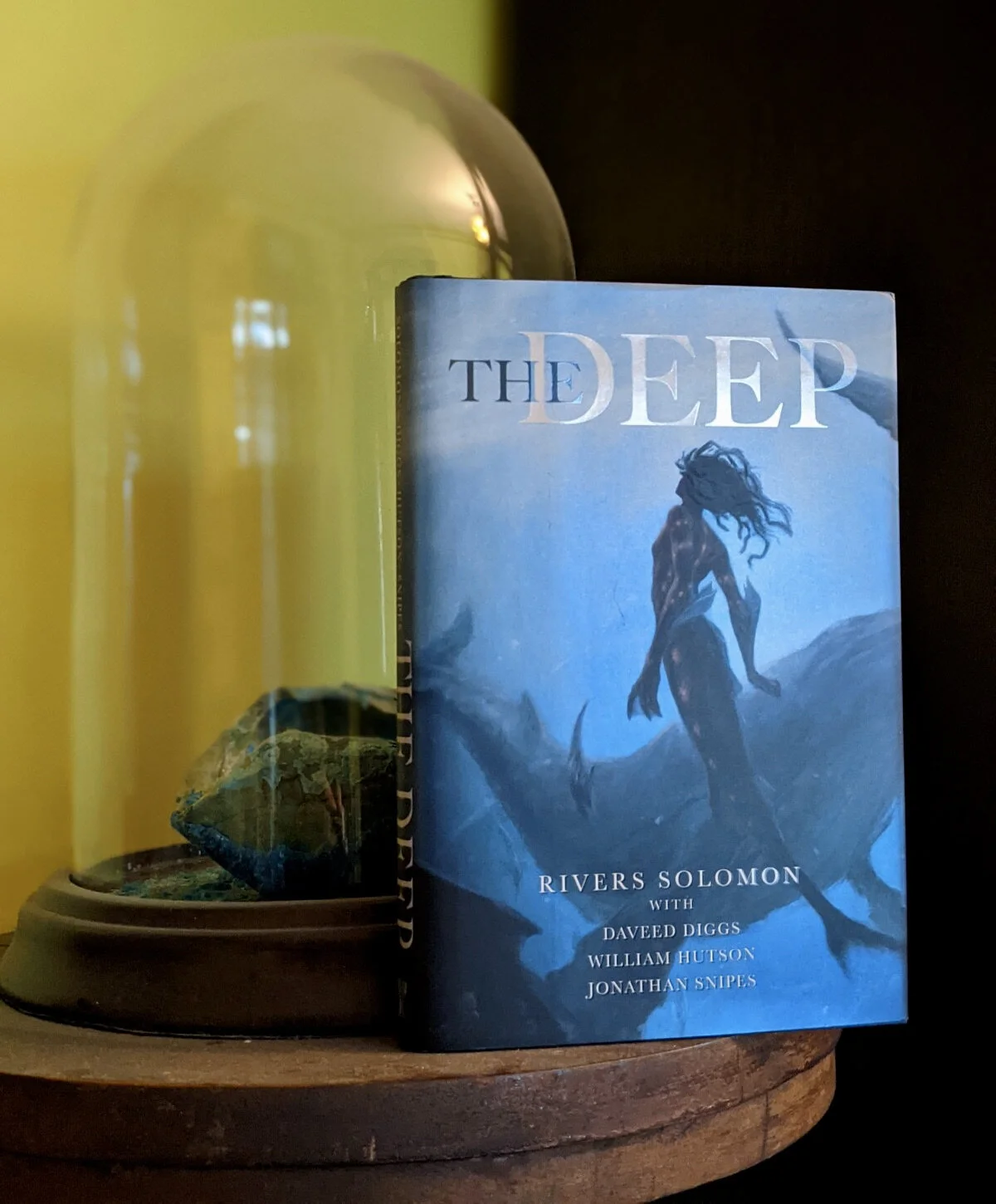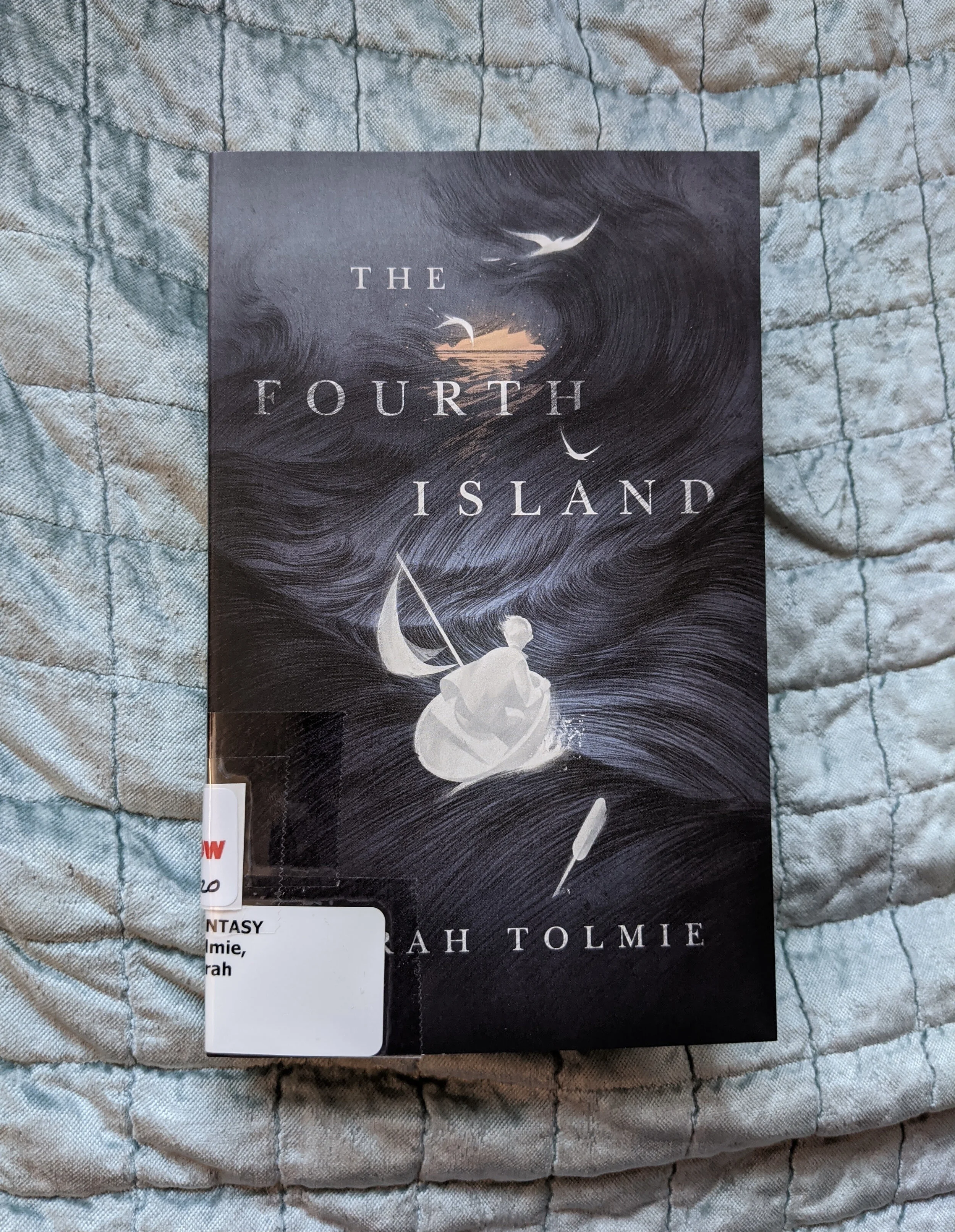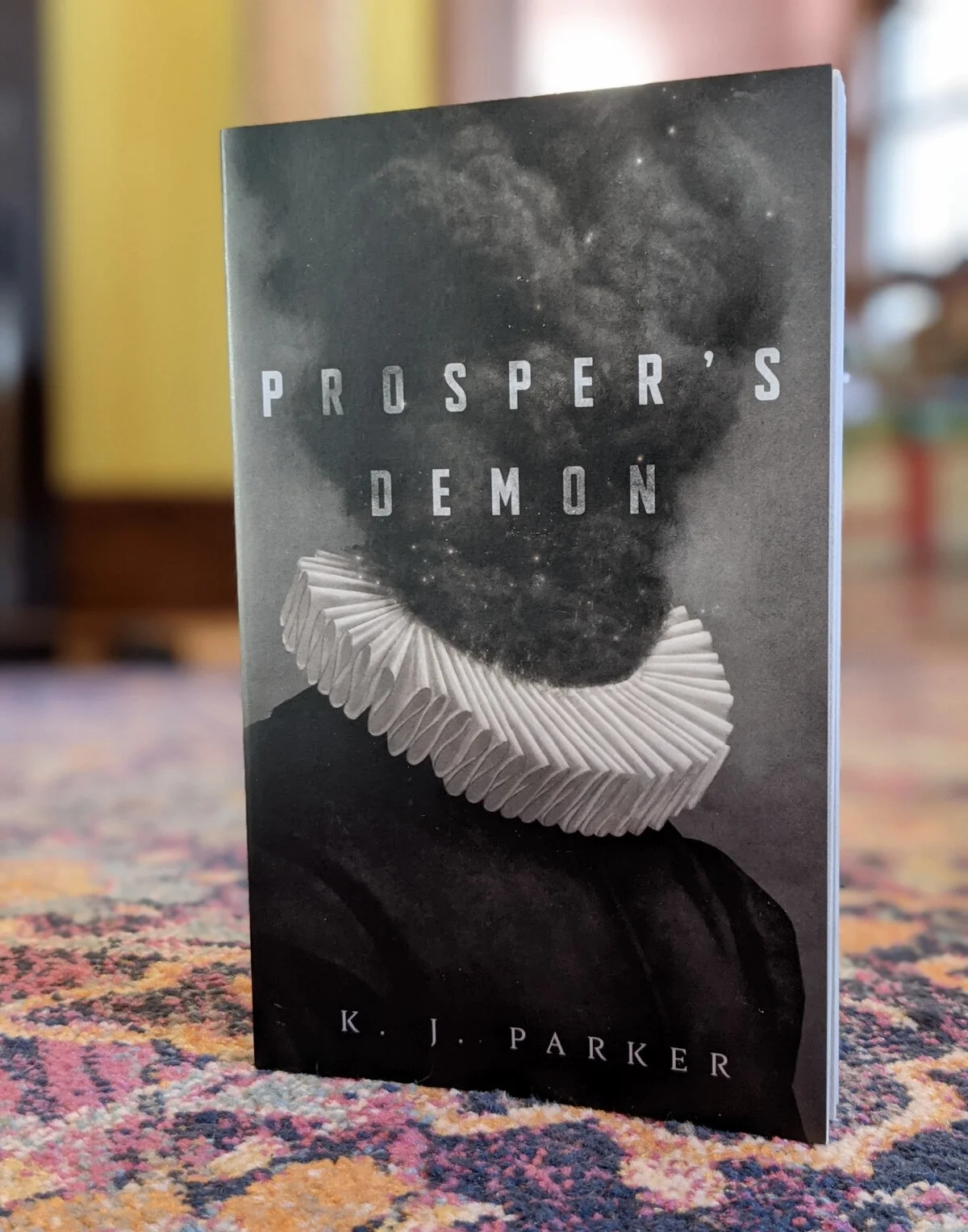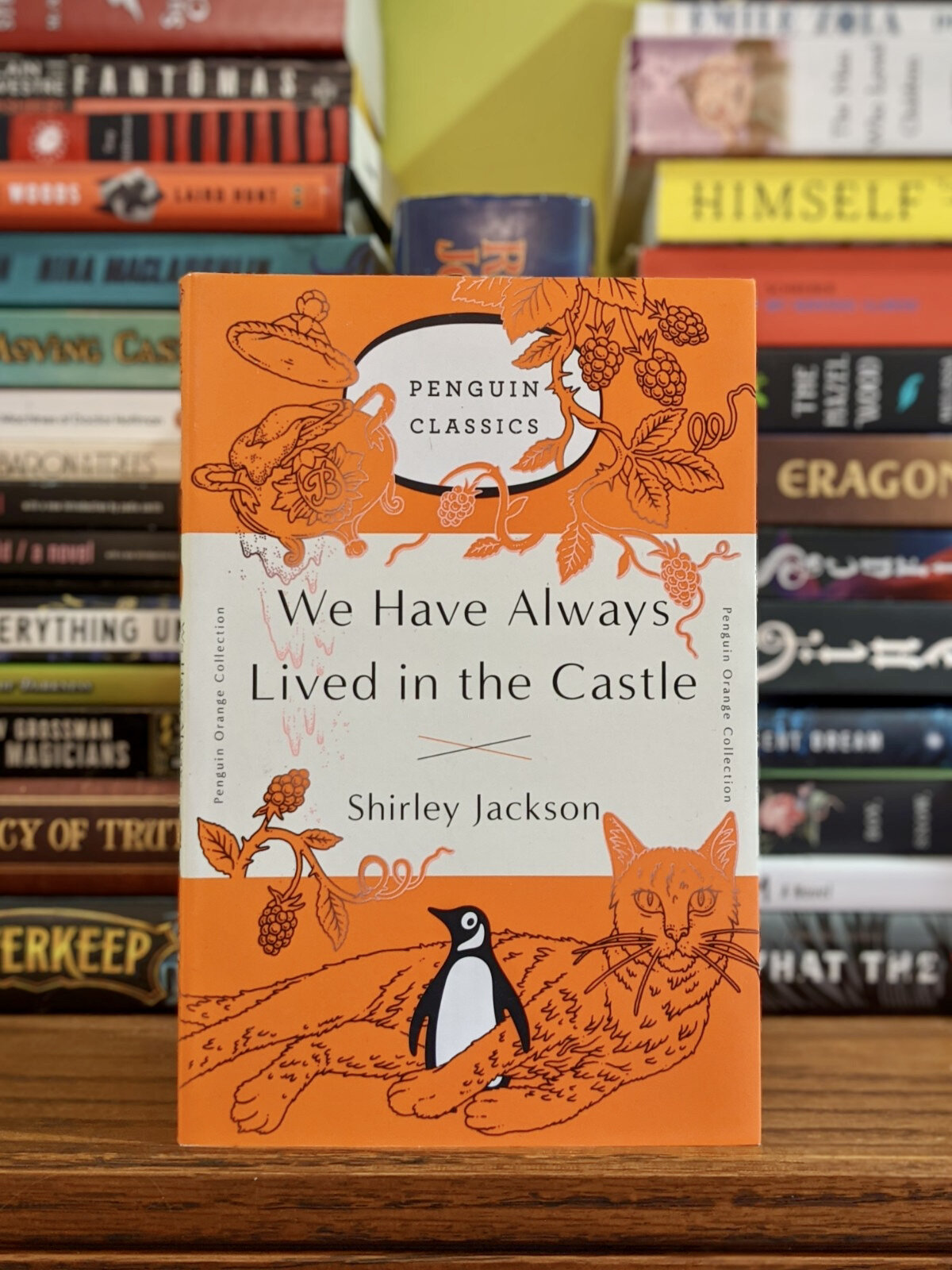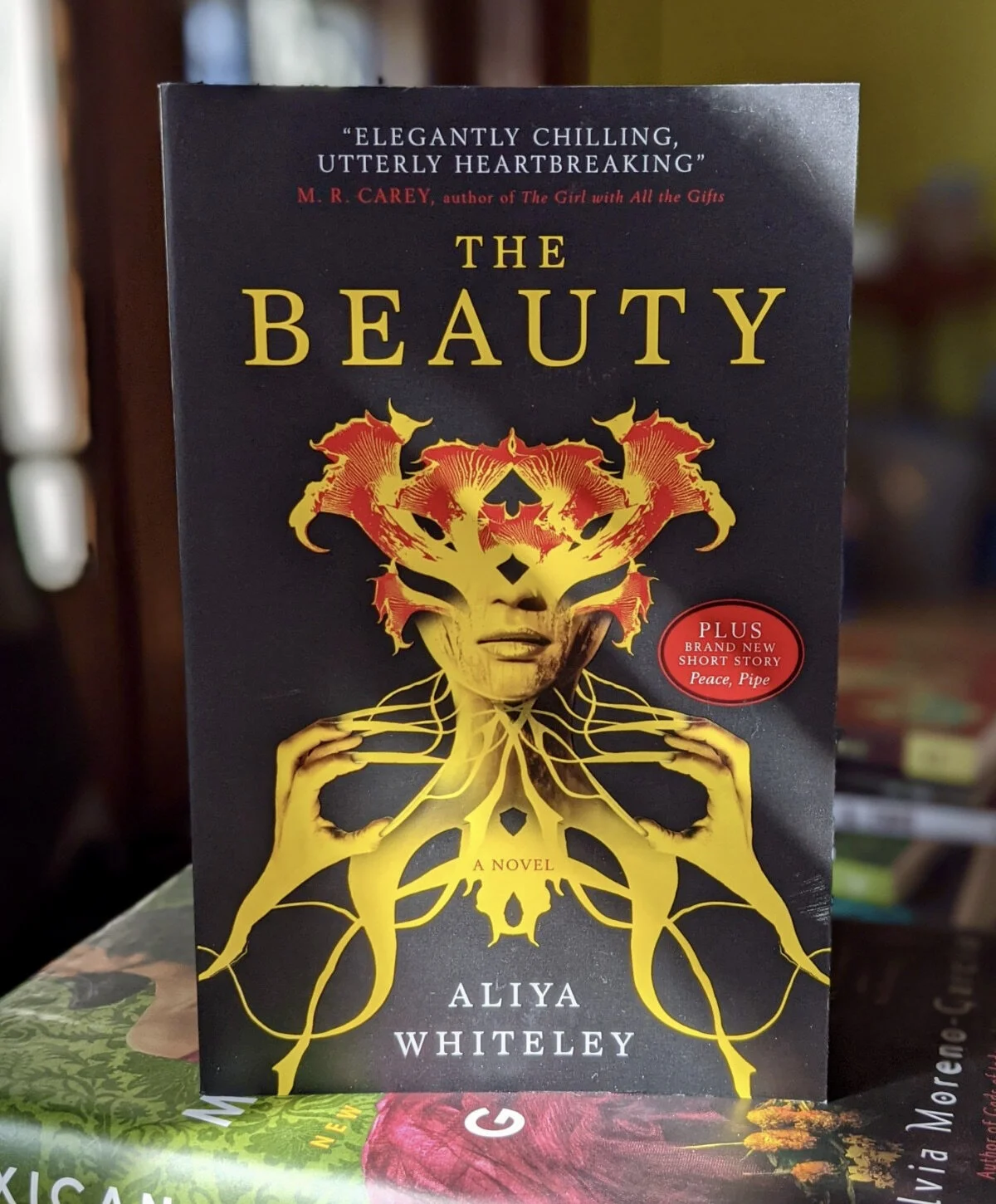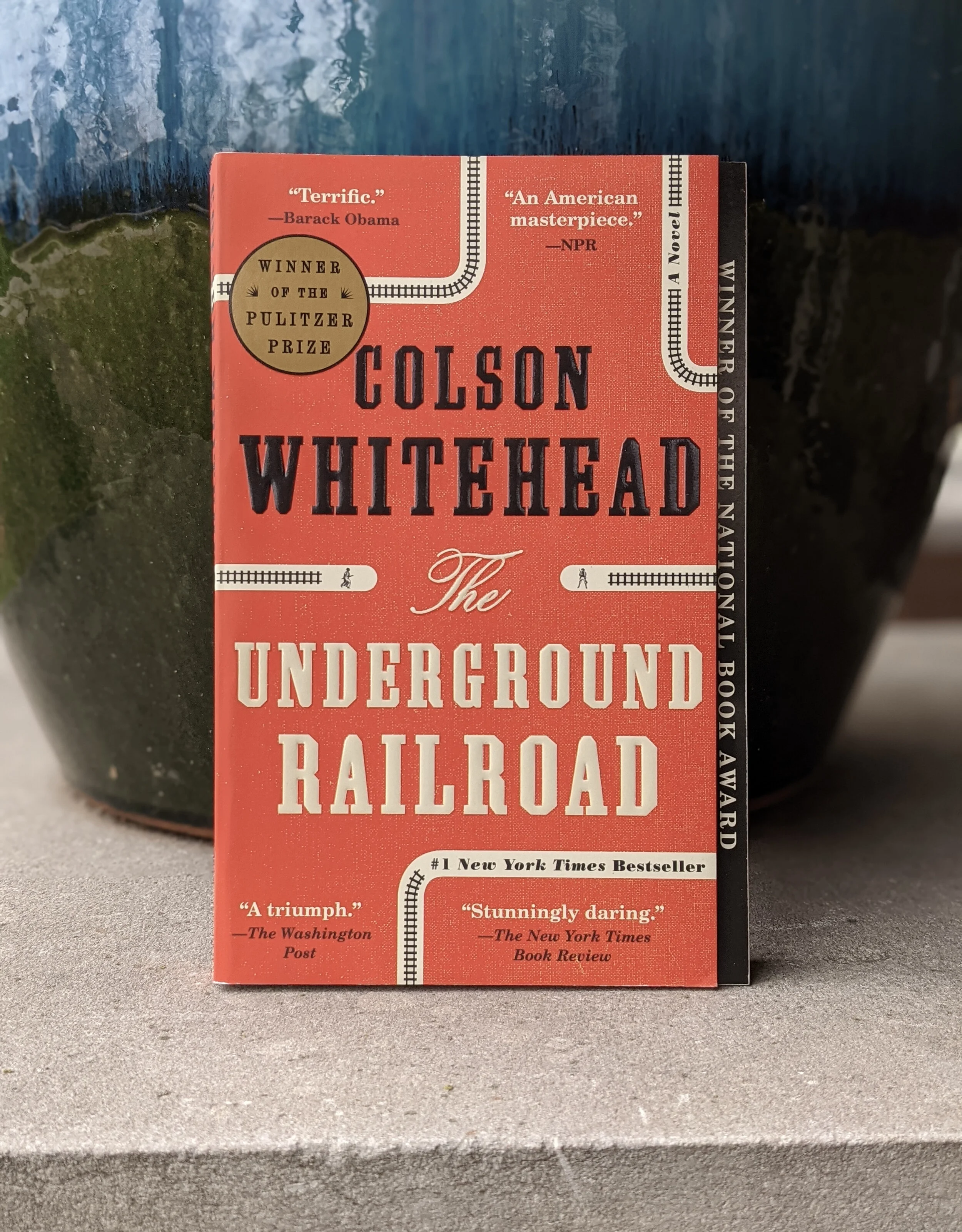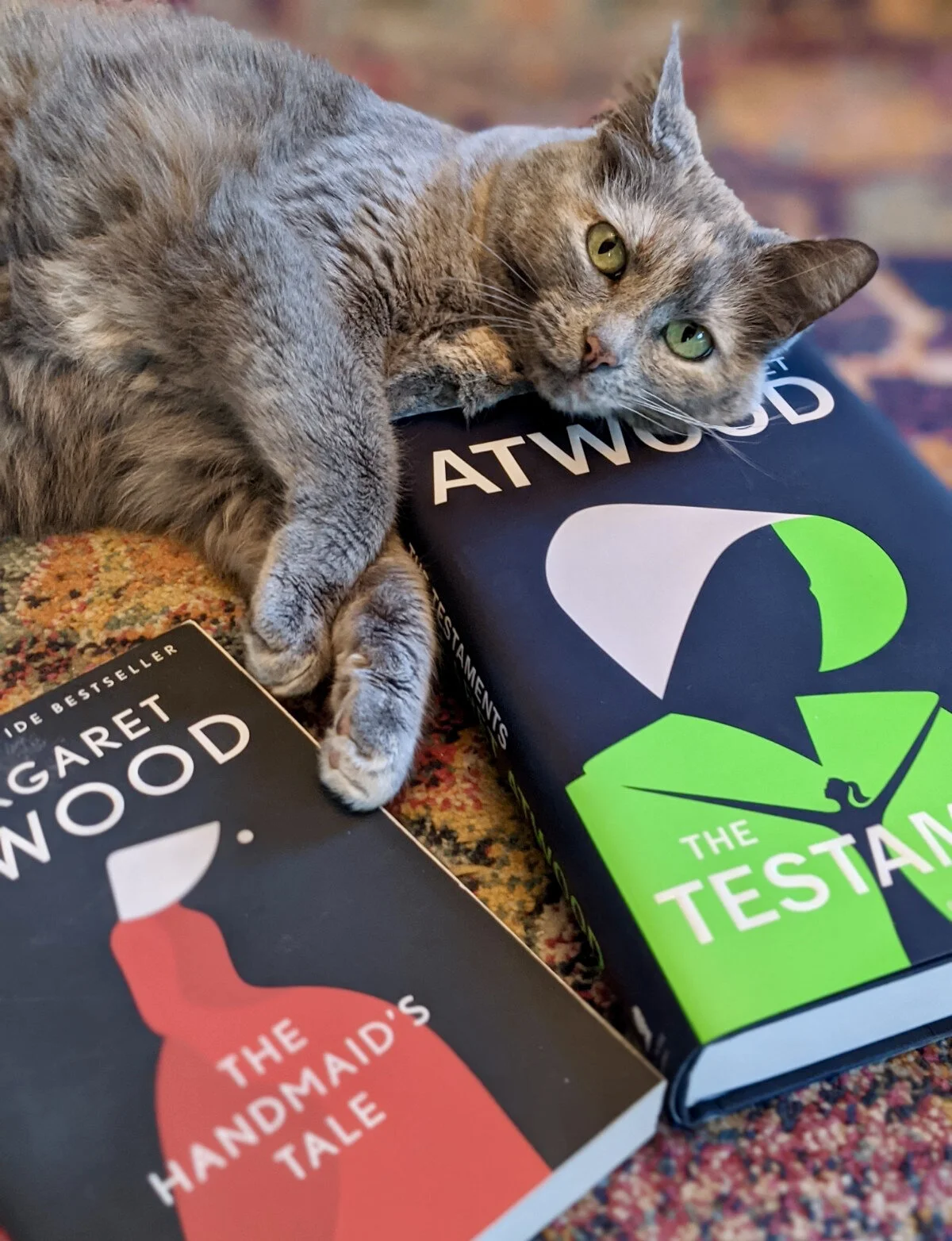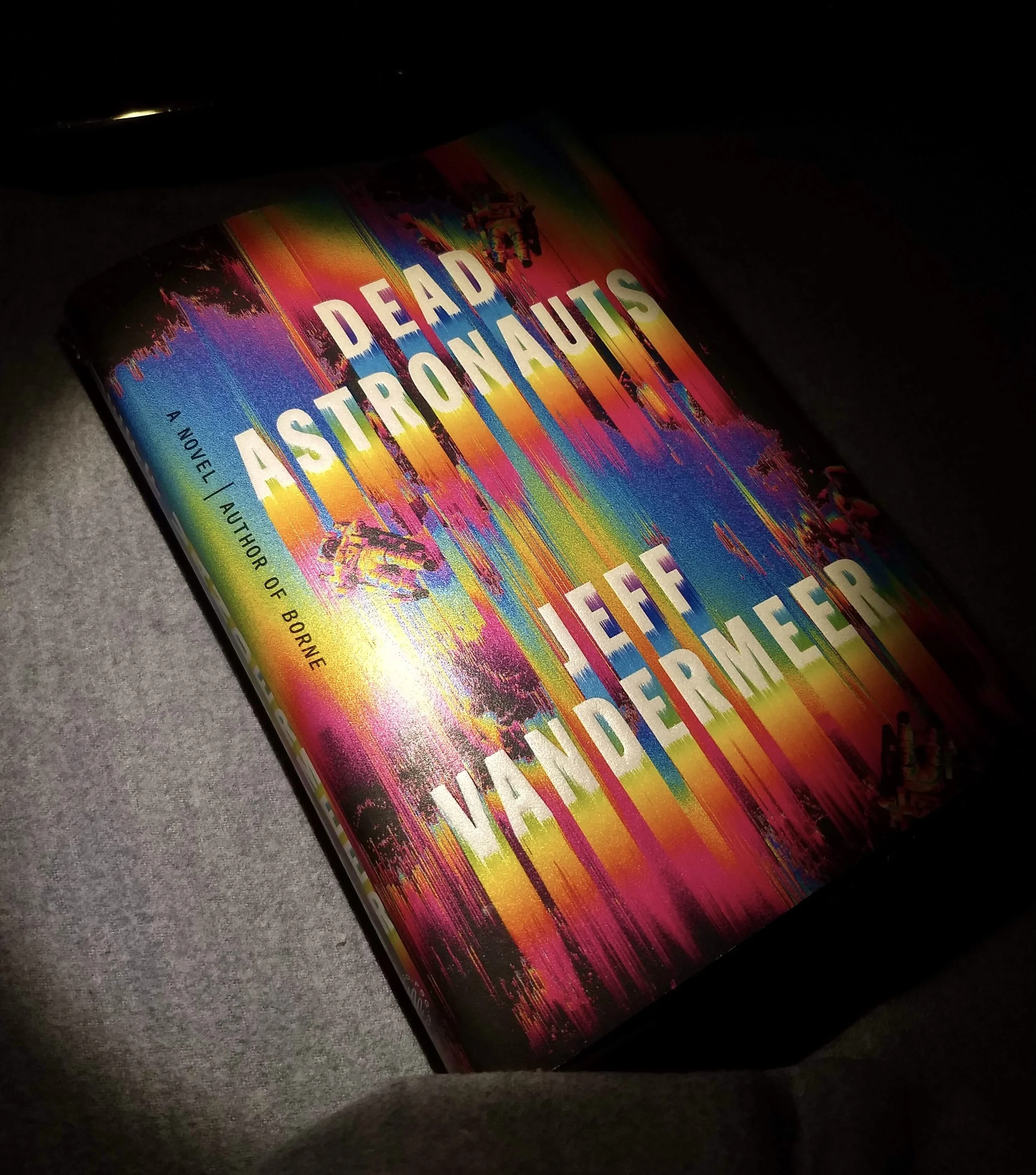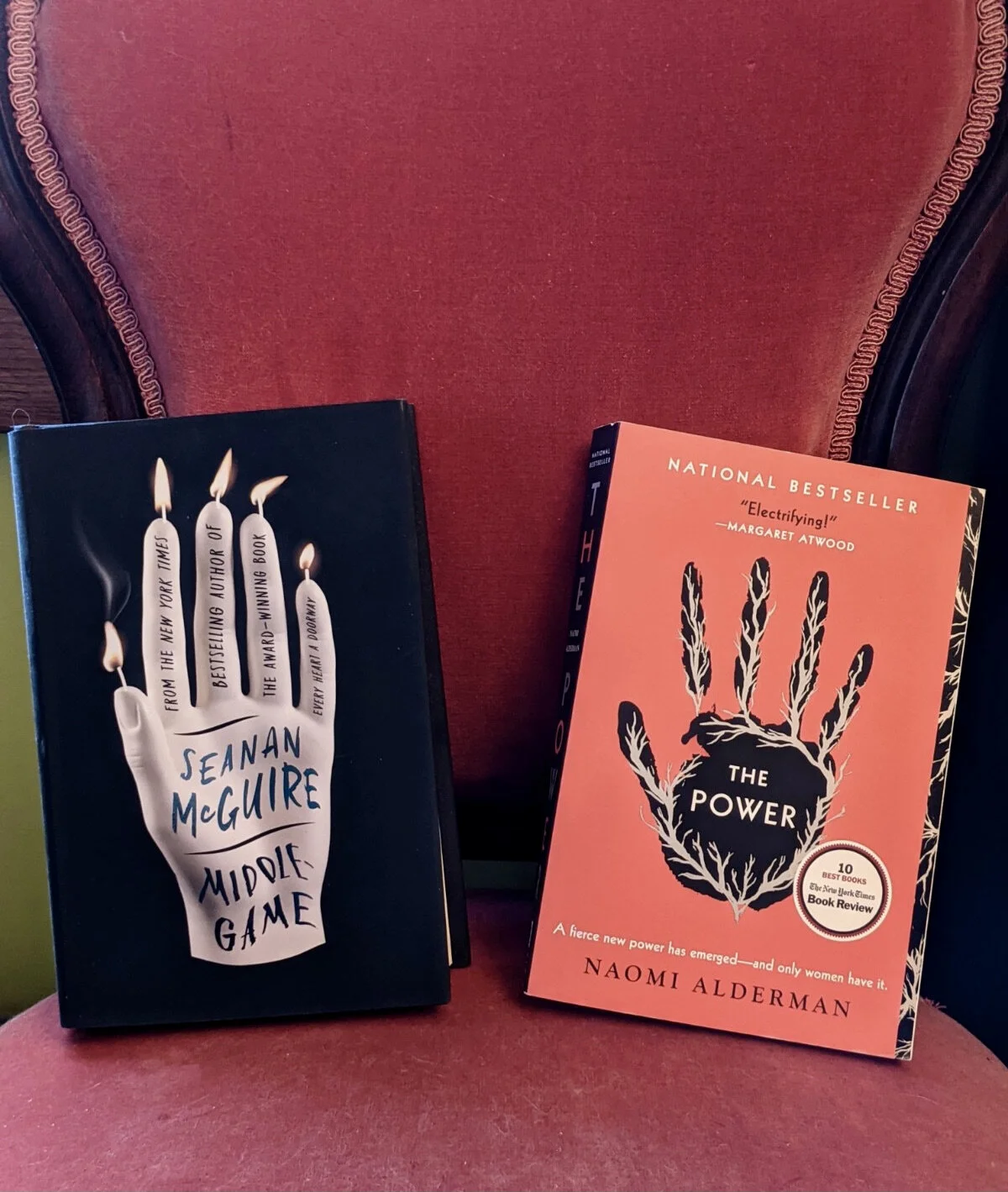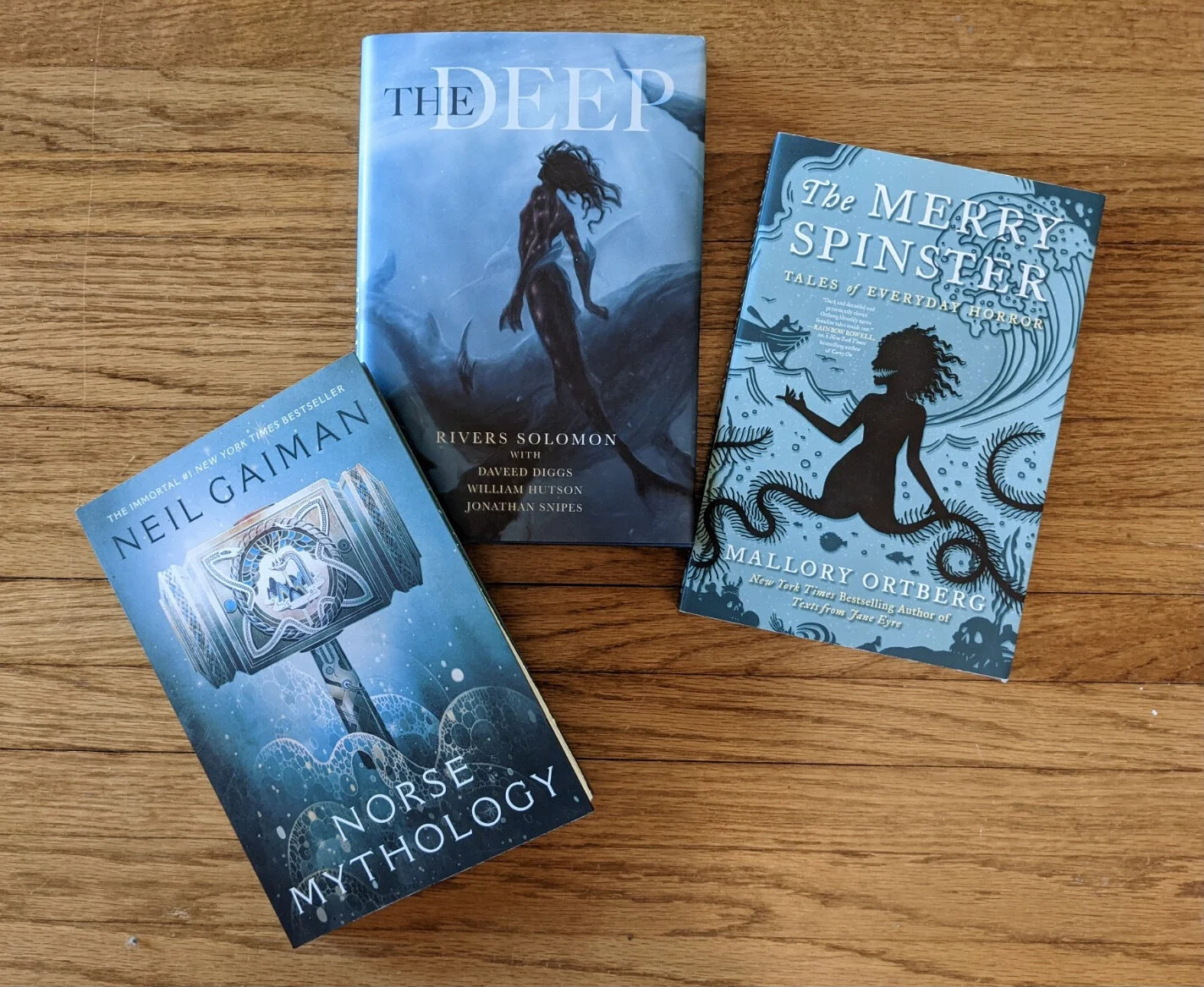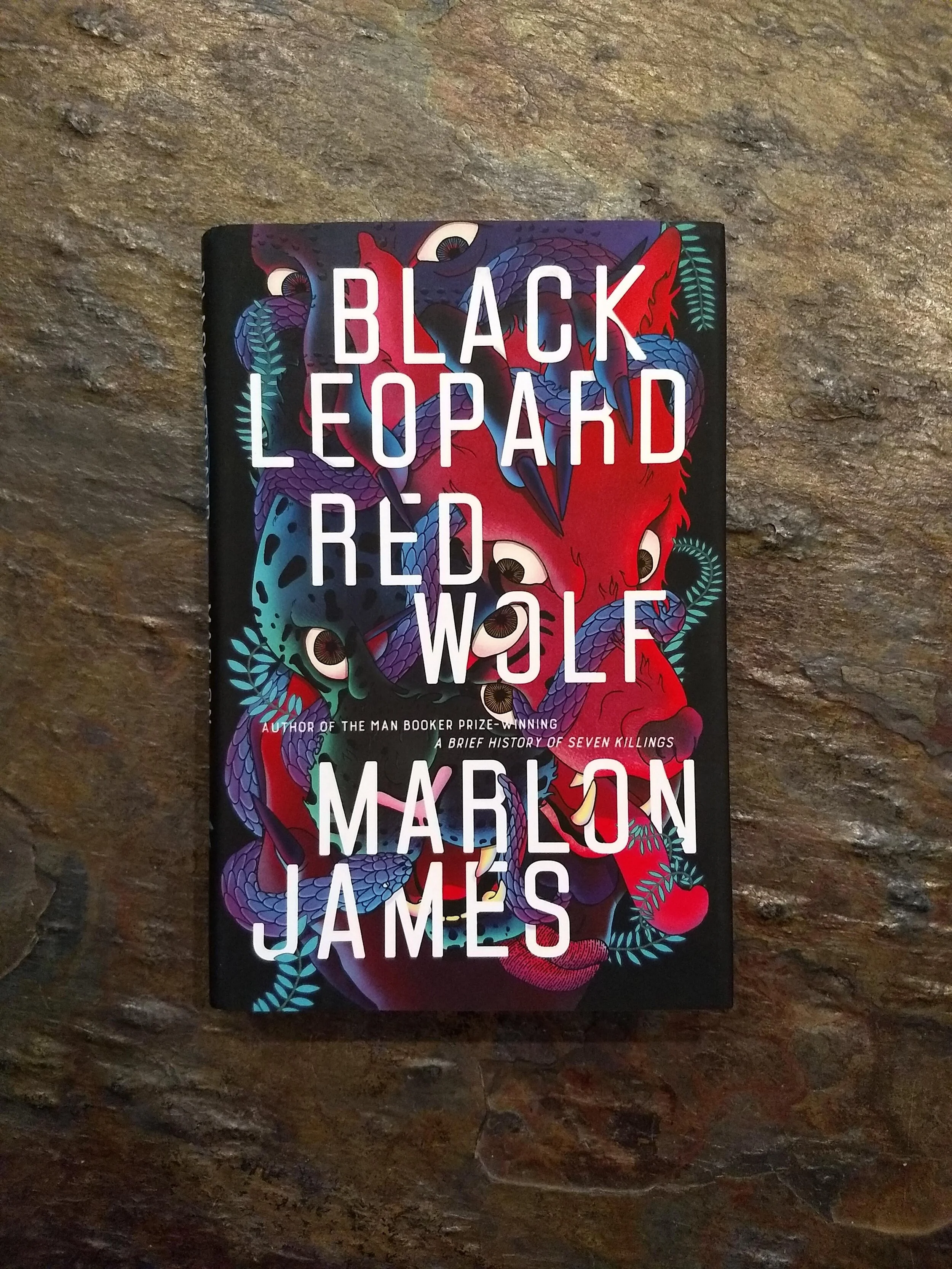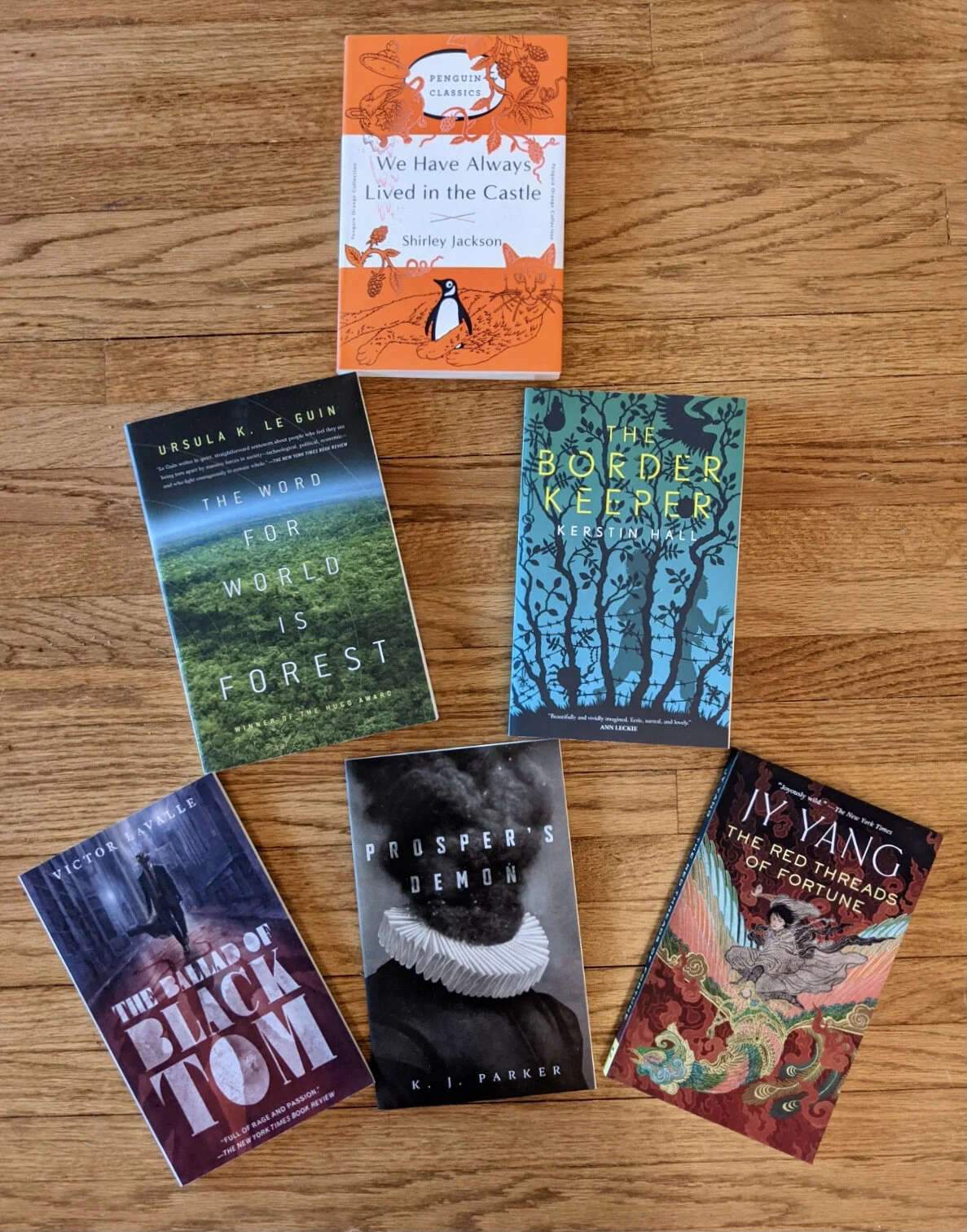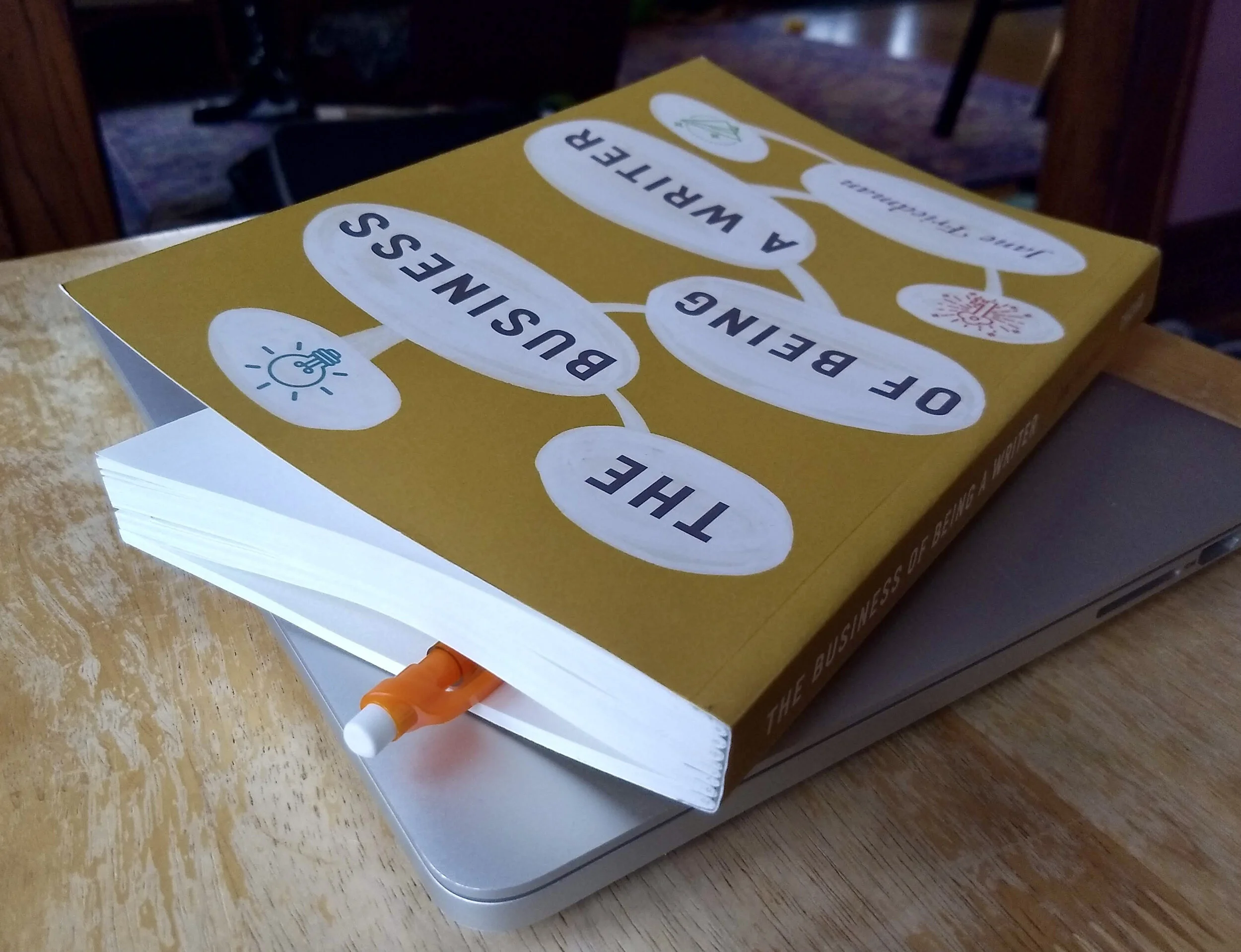Twenty-one may seem like an ungainly number for a “best of” list, but in truth the following total could be much larger. Of the 100ish texts I started and 80-some I finished in 2020, there were only a small handful I didn’t really care for and even fewer I actively disliked. But now that the year has ended and I’ve had a little distance, the following 21 are those that have stuck with me as being both particularly impressive, enjoyable, and/or culturally necessary. In fact, a number of the books on this list I originally checked out of the library or listened to on audiobook but ended up owning anyway because I loved them that much.
My personal taste runs towards the surreal, psychological, and unsettling, and I especially appreciate books that present me with a new perspective. In general, my top picks are made up of novels, novellas, and a memoir I found thought-provoking, well-written, entertaining, and/or inspiring. They are, in other words, the books I most needed at the time I read them, but which I believe hold up beyond that narrow context.
The following list is in no particular order, with the exception of the first three installments: The Testaments, Parable of the Sower, and Parable of the Talents were not only my favorite books of the year, but are also among my favorite books of all time.
1. The Testaments, Margaret Atwood (2019)
The Testaments is a thoughtful and surprisingly hopeful dystopia with interesting, complex female characters. It also might be the most perfect book I’ve ever read (or listened to), with an excellent audiobook narrated by an all-star cast. Although a sequel to the iconic Handmaid’s Tale, I actually preferred it to its predecessor. Here, Atwood tells her story through the voices of three very different characters—each of whom represents a different perspective on life in Gilead—and thereby offers a more nuanced view into the world she describes and the lives she depicts within it.
2–3. Parable of the Sower (1993) and Parable of the Talents (1998), Octavia Butler
2020 was the ideal moment to read the brilliant and prophetic Parable duology, which follows a woman who can literally feel other people’s pain trying to both survive and lead in a time of social crisis brought on by climate change. If you haven’t read it already, stop what you’re doing and go read it now.
4. Exhalation: Stories, Ted Chiang (2019)
The best science fiction opens up your mind to new ideas while remaining grounded in believably human characters. What makes Chiang’s stories so impressive is his ability to not only do both of these things, but to do them again and again, in forms that feel constantly, intriguingly, new.
5. Sabrina, Nick Drnaso (2018)
The first graphic novel to be nominated for the Man Booker Prize, Sabrina combines a minimalist visual aesthetic of spare lines and saturated colors with similarly restrained text to communicate its weighty, timely subject matters of murder, alienation, conspiracy theories, and mental health.
6. This is How You Lose the Time War, Amal El-Mohtar and Max Gladstone (2019)
In a war between science and magic, two opposing agents fall in love, even as they try to kill each other. It’s the literary, time-traveling, military sf, enemies-to-lovers, fantasy adventure I didn’t know I needed. It’s also a pretty sharp metaphor for the relationship between the interconnected-if-often-at-odds genres of fantasy and science fiction. If all of that sounds like a lot for a novella, it is—and the the authors pull it off magnificently with writing that is just so, so good.
7. My Favorite Thing is Monsters, Emil Farris (2018)
Presented as an extremely talented child’s sketchbook, My Favorite Thing Is Monsters is a murder mystery in graphic novel form, bringing the reader into both the rich inner world and tragic outer world of its young protagonist living in 1960s Chicago. The visual style here is dense and labor-intensive, and the resulting product is as much art object as book.
8. Hunger, Roxane Gay (2017)
In the series of essays that make up Hunger, Roxane Gay takes on what must have been the daunting, excruciating task of writing openly about her relationship with her body and her body’s relationship with the world. She also reads the audiobook, which made the work feel even more like an intimate gift to the unknown reader. Her ability to dig deep and share what she finds there was inspiring, both personally and creatively.
I can’t help but feel that Hunger has set the bar for memoirs, even as I fear that standard is too high. No one should feel forced to bare such painful parts of themselves for public consumption. Even so, Hunger demonstrates that when done for the right reasons and at the right time for the author, as it seems to have been here, unsparing honesty can be a real force for changing the world.
9. Monstress, Book One, Marjorie Liu and Sana Takeda (2018)
Femininity has never been so stunning, sharp, and brutal as it appears in the pages of Monstress. The Art Nouveau and Japanese-inspired art design is jaw-droppingly rich, with page after page of startling images that only improve the longer you look.
10. Mexican Gothic, Silvia Moreno-Garcia (2020)
A refreshing, well-paced take on Gothic horror, Mexican Gothic injects a sharp, clear-thinking heroine; post-colonial social commentary; and a Mexican setting into the classic, creepy Gothic formula of mind-games in a deteriorating, isolated, and possibly-haunted mansion.
11. Killing Commendatore, Haruki Murakami (2018)
Of all the books I read last year, the surreal Killing Commendatore is the one I’m most conflicted about. On the one hand, I think it might be the most insightful novel I’ve ever read about creativity. On the other, the text contained too much repetition in both phrasing and information, the kind of the things that definitely would have been edited out of a less established author’s work and should have been edited out here. The many explicit scenes also brought out my inner prude, but that is probably more my issue than the book’s. Still, what’s great here is really great. If Murakami ever comes out with a revised and streamlined edition, Killing Commendatore would easily be among his best work.
12. The Seep, Chana Porter (2020)
The Seep was not only one of my favorite reads of last year, but is also my pick for the most egregiously overlooked book of 2020. It’s an unusually lovely and intimate alien invasion story that, like most good alien invasion stories, is really about what it means to be human. Although it reminded me of books like Jeff VanderMeer’s Annihilation, Emily St. John Mandel’s Station Eleven, and Octavia Butler’s Lilith's Brood, it is also deeply rooted in our current moment and very much its own thing. I devoured it in a day; a faster reader (which is most people) could probably do it in a sitting.
13. The Slow Regard of Silent Things, Patrick Rothfuss (2014)
I listened to this novella on audiobook, where it began with the author warning readers to stop if they hadn’t already read other books in the series. I ignored his advice, and am glad I did. The Slow Regard of Silent Things is a beautiful, meditative little book, which follows a single character and her interactions with the inanimate objects she loves, delicately cares for, and imbues with life. Completely devoid of dialogue, it is a masterclass in writing and character and, despite the author’s own protestations to the contrary, can entirely stand on its own.
14. The Deep, Rivers Solomon with Daveed Diggs, William Hutson, and Jonathan Snipes (2019)
The Deep, a novella written by Rivers Solomon in response to the song of the same name by Daveed Diggs, William Hutson, and Jonathan Snipes (aka, the experimental hip hop group clipping.), uses the idea of mermaids descended from African women thrown from slave ships to explore, among other things, the importance and pain of remembering traumatic cultural history. Unique, fascinating, and beautifully written, this book will be cathartic to some, eye-opening to others, and is a necessary read for all. The audiobook, narrated by Diggs, includes a discussion between Solomon and Diggs at the end.
15. The Fourth Island, Sarah Tolmie (2020)
Lush writing meets stark scenery in this Brigadoon-like tale of an Aran island that appears only for the lost. Reading The Fourth Island was like breathing fresh, sea-salty air. At only 112 pages, it was the perfect length: a small jewel I look forward to picking up again.
16. Prosper’s Demon, K. J. Parker (2020)
Prosper’s Demon is a dark-but-funny, well-written, well-edited, and slim novella following an anti-hero exorcist in an alternate Renaissance-ish Europe. It also sports great cover art. My only disappointment was that it didn’t take a little more space to tell its story. Fortunately, there is a sequel due out later this year, which I am very much looking forward to.
17. The Hunger Games, Suzanne Collins (2008)
Reading and enjoying both the Hunger Games and Neil Gaiman’s Graveyard Book for the first time this year made me think about the ways in which adding labels like YA and Middle Grade can do a disservice to books—especially genre books—that are as suitable for adults as they are for children and teens. The Hunger Games, with its commentary on class, fame, and the mechanisms of social control, especially felt like a book I could have found in my college course on speculative fiction, while also being an engaging, well-constructed read.
18. We have Always Lived in the Castle, Shirley Jackson (1962)
Two sisters—one a young woman, one just nearing adulthood—live with a wheelchair-bound uncle in their once-grand, now dilapidated family home. The three are the only survivors of a poisoning that killed the rest of the family years ago, and left the remaining members to live as near shut-ins, shunned by most of the neighboring townsfolk. When a shady distant cousin arrives, offering one sister the hope of a better life, even this relative peace quickly disappears.
Shirley Jackson just might be queen of the unreliable narrator, and with its complex character dynamics and tone that balances innocence with danger and unease, We Have Always Lived in the Castle is a classic for a reason.
19. You, Caroline Kepnes (2014)
Speaking of unreliable narrators: Caroline Kepnes’ You is written in the first person narration of a young, bright, and romantic New Yorker who is also a dangerous and obsessive stalker. This dark, satirical take on romance tropes has been extremely polarizing, and I see I was also conflicted enough directly after reading it that I never actually rated it on Goodreads.
It’s probably also relevant that I watched the first two seasons of the show before reading, so my memories of the two have become a bit entwined. But one of the things that’s stayed with me about the book is the impressive way Kepnes keeps the reader interested in such a horrifying person while never really letting him off the hook. Yes, the secondary characters are also not great people, but Joe, who sees—or thinks he sees—through them is in fact SO MUCH WORSE. And that is part of the point: flawed people still deserve sympathy, and self-righteousness is not the same as morality. Both the show and the book play with reader expectations and biases in ways that not only keep us hooked, but should also cause us to take a harder look at ourselves.
As a writer, I was impressed with the strong and consistent voice of a character I have to assume is different from that of the author herself. As a reader, I found the story compulsively addictive. I particularly recommend the audiobook, read by Santino Fontana.
20. The Beauty/Peace, Pipe, Aliya Whiteley (2018)
In the novella The Beauty, the sixth dystopian/post-apocalyptic story on this list, Aliya Whiteley conjures a world in which all women have been killed by a fungus, leaving the men to face a slower extinction alone. But then something new—something fungal and humanoid and seemingly feminine—starts rising from the women’s graves. Fusing zombie stories with environmental and body horror, Whiteley packs both social commentary and haunting imagery into a small, tightly woven package.
My edition also included the novelette Peace, Pipe, in which an isolated woman attempts to communicate with something that is either an alien intelligence or a simple water pipe. For me, this open-ended story hit the sweet spot between science fiction and psychological fiction, and could appeal to those who appreciate Charlotte Perkins Gilman’s “The Yellow Wallpaper” or Frank Stockton’s “The Lady, or the Tiger?”.
21. The Underground Railroad, Colson Whitehead (2016)
I’d already made up this list when I realized I actually finished The Underground Railroad at the very end of 2020 and not, as it had somehow burrowed in my mind, at the beginning of 2021. Thus, my prior list of 20 best books became 21. Whitehead’s novel is a brutal read with a slightly surreal bend (his vision of the underground railroad is of an actual trainway, built by freedom-seeking slaves, located underground). The novel does an impressive job of communicating just how dangerous and claustrophobic it must have been to be a Black person in the south, where even those places offering sympathy and relative freedom were really just another kind of trap.

